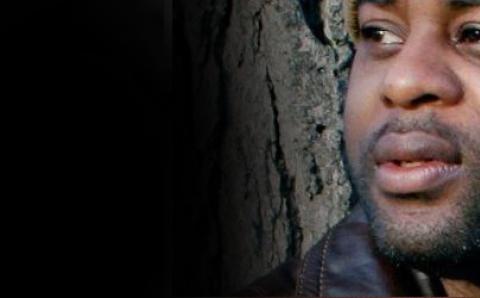We must be more dogmatic (so that we may pontificate more appropriately).
Please don’t go away, as they say on TV when the commercials are about to begin. I do have a “commercial,” and I hope you will “buy” it. If you dislike the topic as I have stated it, we’re probably good friends.
You see, in the last few months, I’ve gone through some rethinking. It began as I was reading some of the early church fathers. I must confess that these had never interested me greatly. While studying at a seminary that prided itself as a defender of the faith, my fellow students and I dismissed quite summarily, for example, Origen of Alexandria, who was so free with his allegories that it seemed to us that “anything goes.” We of the Western church were just too advanced to give such capers the time of day—or so we thought.
But when I began to read what certain church fathers had written—particularly the Cappadocian Fathers (Basil of Caesarea, Gregory of Nazianzus, and Gregory of Nyssa)—I concluded that not only did these early saints deserve a hearing, but that we in the Western church ignore them at our loss.
Geographically these Cappadocians were part of the “land of the Bible.” Chronologically close to the New Testament (ad 329-390), they lived in a culture much like that of the New Testament, speaking and writing in Greek, the language of the New Testament. These are qualifications few if any of us can claim.
Basil’s way of reading and interpreting Scripture struck me as very different from the way we in the Western church read Scripture. Discussing the first chapter of Genesis, he says that Moses “deemed it sufficient to make known the one who created and ordered it, refusing to examine out of curiosity the question of its essence (ousia), as this would be vain and useless” (Contra Eunomius 1:13). His point of reference was the Creator, not the creation. No doubt he would have been quite annoyed by the way we in the West tend to “test” the Scriptures by the standard of metaphysical accuracy.
Dogma
These Cappadocians seemed to agree on a particular formula: That which is clear in Scripture must be proclaimed from the pulpit, but dogma is more private. They used the word dogma quite differently than we do. Dogma comes from the Greek word dokein, which means “it seems” or “it appears.” For them, dogma was used in connection with statements that expressed what seems or appears to be.
For the church fathers, the commands of Scripture were clear: “Repent”; “believe”; “be baptized”; “deny yourself”; “take up your cross and follow me”; “eat and drink in remembrance of me.”
By contrast, the dogmas were not so clear—precisely how Christians were to understand repentance and faith was not self-evident. Exactly what believing involved was not absolutely clear, but preachers should proclaim what the book of Hebrews teaches about faith. Just what was meant by eating and drinking “in remembrance of me” was not easily settled either. Thus Christians should speak of dogma with reverent reticence. Questions are more appropriate than declarative statements. We should remove our shoes when standing on holy ground.
But the Cappadocians recognized another level of authority called theorie or interpretation, which must be offered with even greater care or deference. Our interpretation is the result of how we perceive dogma. Many dynamics go into the process of interpretation, including our own culture and worldview and the translation of the text we depend on. All these factors indicate that we do well to exercise a tentative, reverent reserve in our interpretation of Scripture with respect to faith.
The early church fathers recognized that some things needed to be talked over with others in order to gain a fuller understanding. The old story comes to mind of the five blind men and the elephant, which shows how misleading incomplete information can be to arriving at the truth.
More relevant is the record in Acts 15 of the first church “synod” and its decisions. The question the church was dealing with at the time was “Must the Gentiles who join the church be circumcised?” After considerable discussion with references to Scripture as well as to the way God had been at work among them, they came to a decision: “For it seemed (edoxen, a form of dokein) good to the Holy Spirit and to us to impose no further burden than these essentials. . . .” Refraining from idolatry and fornication were judged to be essential. But such matters as circumcision and dietary laws were in the area of dokein—seemly, appropriate, and helpful for some but possibly not for others. Those of Jewish descent were not forbidden to be circumcised, nor were they required to be circumcised.
What effect has our turning away from the original meaning of dogma had on the history the church and on the church today? Before turning to that question, we need to look at another “straying” word: pontificate.
Pontificate
Pontificate comes from the Latin words pons and pont, which mean bridge, and facere, which means to make or build. Pontificate therefore literally means to build bridges. Used in that sense, the word would be fitting to describe Jesus Christ, the great bridge-builder between God and humanity. But in the history of the Western church, we have assigned the word a different meaning. And this too has not been without effect.
I can’t help but wonder how different the history of the church might have been if pontiffs had been “bridge builders” rather than dictators. Does it explain why the history of the Western church seems more violent than that of the Eastern church? What historian could deny that the actions of the Inquisition are the nadir of disgrace in church history?
But Protestants don’t come off too well either, as the following story indicates. In 1956, I visited the castle at Marburg, Germany. Our guide told us that Luther and Calvin had come together there to find agreement on the meaning of the Lord’s Supper; he said they sharply disagreed and therefore did not partake of the meal together. If this is true, they permitted dogma to trump Christ’s clear direction “This do in remembrance of me.”
Today church historians are not convinced that Luther and Calvin ever really had a meeting. And whether they did or not is not important. What is important is whether Lutherans and Calvinists can celebrate the Supper together today.
Does this not explain many of the schisms that have occurred in the church? While the church cannot tolerate denials of what is clear in Scripture (1 John 2:22-24) and it must remove blatantly immoral persons from its fellowship (1 Cor. 5:13), there is much in the Christian faith and in the teaching of Scripture that is not cut-and-dried. On the one hand, our relationship with God is simple; we must receive him and his love like little children. On the other hand, the Christian faith and walk are not simplistic; understanding the teachings of Scripture is not without challenge.
We Christians are one-of-a-kind divinely made human beings. Each of us is an individual with a unique personality and a specific history. But God also said it was not good for humans to be alone (Gen. 2:18); within the body of Christ all the members must come together to form an organic whole (1 Cor. 12:12-31).
Does this mean that we should expect only clear and simplistic utterances to be made from the pulpit? Hardly. But it does mean that a sermon must indicate what is debatable and what cannot be questioned.
I recently witnessed a good example of how to properly “divide the word of truth.” Our pastor was preaching a series on the appearances of the resurrected Jesus. That morning it was the scene of the unsuccessful fishermen and Jesus’ preparation of breakfast for them. The pastor said some essential things about our Lord’s power (controlling fish) and his concern for our needs (baking fish). But what about the intriguing detail of the number of fish—153—that the disciples caught? What was the meaning of that?
The pastor indicated that there were different interpretations. Some took it simply to mean that the disciples were counting, and when they got to 153 there were no more fish. Others perhaps more mathematically inclined recognized 153 as a perfect number. But there was one more interpretation (theorie) that the pastor found interesting: According to Greek biologists of that time, there were just 153 species of fish. In that case, it could mean that these Christ-appointed “fishermen” were to reach and gather every “species” of humanity. A delightfully tantalizing theory!
Yet often we must admit that we see through a “glass darkly.” We do not have the final answer. Individually we are like one blind person convinced that the elephant is a rope arguing with another who says the elephant is a pillar or another who says the elephant is a wall.
Perhaps being more dogmatic (in the original sense of being more reverently reserved) can help us to be more appropriate pontificators—that is, bridge builders.
Consider once more Acts 15, which records the proceedings of the church’s first synod. The decision is made that circumcision is no longer mandatory. Paul must have been elated. Yet in the very next chapter he meets Timothy, a half Jew, and Paul circumcises him. Why? “Because of the Jews” (Acts 16:3). Apparently bridge-building was more important than the new-found liberty. Paul was not secretive about this matter. The new liberty was not allowed to function as a stumbling block to the Jews or to the Gentiles, for Paul also sought to “[lead] the Gentiles to obey God by what I have said and done” (Rom. 15:18). Winning others to Christ—bridge-building—was paramount for Paul.
This suggests that Christians are called to exercise a holy hesitancy in many matters of the Christian faith and walk. Paul struggled with this in the matter of eating meat (ceremonially clean or unclean). If eating meat might cause his brother or sister to stumble, he would rather refrain.
Christian doctrine includes such matters as the sovereignty of God versus the responsibility of humans, how God feels or thinks about unbelievers, and his relationship to them. On these matters and more, we are called to defer to divinity. Instead of strapping on our combat boots, is it not more appropriate for us to take off our shoes and stand in awe? If Moses stood in awe at the burning bush that was not consumed, how much more should we stand in awe at the mighty acts of God? As Paul reminds Timothy, “Beyond all question, the mystery from which true godliness springs is great” (1 Tim. 3:16).
The church must be prophetic, but it must be prophetic with self-denying love instead of with arrogant declarations. This will enable denominations to extend sincere greetings of love and goodwill to one another—allowing the church to serve humanity and reflecting its oneness in Christ.
Web Questions
- How does the Cappadocians’ use of the word “dogma” differ from ours? What difference would that make for the way we interpret the Bible and the level of agreement we require from one another in our interpretation?
- Do you agree that “Christians should speak of dogma with reverent reticence”? Why or why not? Give some examples.
- We believe that the Bible is infallible. We also believe that our interpretation of Scripture is not infallible. While interpretation is, God willing, Spirit-led, it is still a work done by fallible human beings. Does the Cappadocians’ thinking about theoria help us to moderate our debates on issues such as creation/science and homosexuality?
- What, according to Vos, does Acts 15 teach us about how to approach disagreements in the church? Do you agree with him? Why or why not?
- Vos writes, “I can’t help but wonder how different the history of the church might have been if pontiffs had been ‘bridge builders’ rather than dictators.” Speculate along with Vos—what difference might that have made? Would that have put Christ’s church in a better or worse position in this world?
- Does the preaching in your congregation adequately alert you to interpretations and applications that embody essential Christian truth and those that are more debatable and personal? Give some examples.
- How can the church remain prophetic while still being “dogmatic” in the good sense and also being better “pontificators” (bridge-builders)? What effect would that have in our denomination and in the church universal?
About the Author
Rev. Clarence Vos is a retired minister in the Christian Reformed Church and a professor emeritus of religion and Old Testament at Calvin College, Grand Rapids, Mich.









